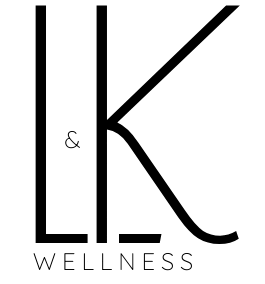Why Eating Fiber is Important for Your Body

Why Eating Fiber is Important for Your Body
Fiber is a crucial component of a healthy diet that often doesn’t get the attention it deserves. It’s essential in keeping your digestive system functioning properly and helps prevent various health issues. But why exactly does your body need fiber, and what foods can you include to ensure you’re getting enough?
What is Fiber?
Fiber is a type of carbohydrate that your body can’t digest. Unlike other carbs that break down into sugar, fiber passes through your system undigested, aiding in digestion and supporting overall health.
Why Does Your Body Need Fiber?
- Improves Digestion
One of fiber’s main benefits is how it bulks up stools, making them easier to pass. This not only helps prevent constipation but also promotes regular bowel movements. A healthy digestive system is crucial for your well-being, and fiber is a simple, effective way to maintain it. - Supports Heart Health
Soluble fiber, in particular, has been shown to help lower cholesterol levels. It binds to cholesterol particles in the digestive system, helping to remove them from your body. This can reduce the risk of heart disease and keep your cardiovascular system in good shape. - Aids in Weight Management
Fiber-rich foods tend to be more filling, meaning you’re likely to eat less. Because fiber absorbs water and expands in your stomach, it helps you feel full for longer. This can be especially helpful if you’re trying to manage your weight or avoid unnecessary snacking. - Regulates Blood Sugar Levels
Fiber slows down the absorption of sugar, preventing spikes in your blood sugar levels. This is especially important for people with diabetes, but it’s also beneficial for everyone, as steady blood sugar levels help you maintain energy throughout the day. - Reduces Risk of Chronic Diseases
Studies suggest that a diet high in fiber can reduce the risk of developing certain conditions like type 2 diabetes, hypertension, and even some types of cancer, such as colon cancer.
What Foods are High in Fiber?
Adding more fiber to your diet doesn’t have to be complicated. Here are some foods that are excellent sources of fiber:
Fruits: Apples, bananas, pears, oranges, and berries (like raspberries and blackberries) are all high in fiber.
Vegetables: Carrots, broccoli, Brussels sprouts, and sweet potatoes are fiber-rich choices.
Whole Grains: Oats, brown rice, quinoa, barley, and whole wheat products like bread and pasta contain a good amount of fiber.
Legumes: Beans (black beans, lentils, chickpeas), peas, and lentils are some of the best plant-based sources of fiber.
Nuts and Seeds: Almonds, chia seeds, flaxseeds, and sunflower seeds are great for adding fiber to your diet.
Other: Popcorn (without butter) is surprisingly a good source of fiber, as well as bran cereal.
How Much Fiber Do You Need?
The recommended daily intake for fiber is about 25 grams for women and 38 grams for men, though most people fall short of this goal. If you’re wondering how to fit this into your day, start by including more fruits, vegetables, and whole grains in your meals. Even small changes, like swapping white bread for whole grain or snacking on some almonds, can make a difference.
Other Common Questions About Fiber
Is all fiber the same?
No, there are two types of fiber: soluble and insoluble. Here’s a detailed explanation of soluble and insoluble fiber, which are the two main types of fiber your body needs:
Soluble fiber dissolves in water to form a gel-like substance in your gut. It helps slow down digestion, which can be especially beneficial for regulating blood sugar levels and lowering cholesterol. This type of fiber is known for:
- Lowering cholesterol: Soluble fiber binds with cholesterol in the digestive system and helps remove it from the body, reducing overall cholesterol levels.
- Controlling blood sugar: By slowing the absorption of sugar into the bloodstream, soluble fiber helps prevent rapid spikes in blood sugar, which is particularly helpful for people with diabetes or at risk of it.
- Supporting gut health: Soluble fiber serves as food for the beneficial bacteria in your gut, helping to promote a healthy microbiome.
Sources of soluble fiber:
- Oats
- Barley
- Beans (like lentils and black beans)
- Apples
- Citrus fruits (like oranges and grapefruits)
- Carrots
- Psyllium (commonly found in fiber supplements)
Insoluble fiber, on the other hand, does not dissolve in water. Instead, it adds bulk to your stool and helps food pass more quickly through your digestive system. This type of fiber is particularly helpful in:
- Preventing constipation: Insoluble fiber helps move waste through the intestines more efficiently, keeping you regular and reducing the risk of constipation.
- Maintaining bowel health: By speeding up the movement of food through the digestive tract, insoluble fiber can help prevent issues like hemorrhoids or diverticulitis.
- Supporting overall digestion: Insoluble fiber helps to maintain a healthy digestive tract by keeping things moving along smoothly.
Sources of insoluble fiber:
- Whole wheat (like whole wheat bread and pasta)
- Brown rice
- Nuts and seeds
- Cauliflower
- Green beans
- Potatoes (with the skin)
- Wheat bran
How Do You Know Which Type You Need?
Both soluble and insoluble fiber are important, and most fiber-rich foods contain a mix of the two. For optimal health, you should aim to get both types in your diet. Typically, soluble fiber is more beneficial for heart health and blood sugar control, while insoluble fiber is great for digestive health and regular bowel movements.
By including a variety of fiber-rich foods like fruits, vegetables, whole grains, and legumes, you’ll naturally get a good balance of both soluble and insoluble fibers.
Can I eat too much fiber?
While fiber is beneficial, too much can cause bloating, gas, or even constipation, especially if your body isn’t used to it. Make sure to increase your fiber intake gradually and drink plenty of water to help the fiber move smoothly through your digestive system.
Do fiber supplements work?
Fiber supplements can be helpful if you’re not getting enough from your diet, but they shouldn’t replace whole food sources. Foods high in fiber provide other essential nutrients that supplements don’t offer.
Can fiber help with bloating?
Yes, but it depends. Eating fiber helps move things along in your digestive tract, which can reduce bloating. However, too much fiber too quickly, or the wrong kind (like insoluble fiber) can temporarily make bloating worse, especially without enough water.
Fiber is an unsung hero of nutrition that helps keep your digestive system on track, supports heart health, and may even protect against chronic diseases. Whether it’s from fruits, vegetables, whole grains, or legumes, make sure to incorporate a variety of fiber-rich foods into your diet to enjoy the full range of benefits.
Don’t forget to start slow and drink plenty of water when increasing your fiber intake!






